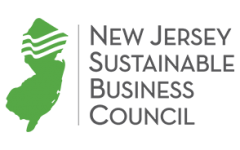On July 14th, NJSBC’s Richard Lawton and several business members were invited to meet with U.S. Energy Secretary Jennifer Granholm for a roundtable discussion on the transition to a more sustainable and equitable clean energy economy. Congresswoman Mikie Sherrill also joined the conversation in which Lyle Rawlings (Advanced Solar Products), Dominique Luekenhoff (Hugo Neu) and other clean energy leaders offered examples of clean energy innovations and their insights regarding how crucial infrastructure investments will fuel the growth of sustainable businesses across the state.
In a press release, Representative Sherril and Secretary Granholm praised New Jersey’s progress:
“These New Jersey businesses are fueling the clean energy economy across our state and setting the gold-standard for the entire country. New Jerseyans know we can tackle the effects of a changing climate, fuel our economic recovery, and ensure our children’s future at the same time,” said Rep. Sherrill. “I was so grateful to join Secretary Granholm and these business leaders to outline how making the right investments in infrastructure can bolster the work of these companies, make our nation more resilient, help us confront the climate crisis, and create thousands of good-paying jobs across my district and the entire state. I’ve worked with many of these companies directly, and NJ-11 is better because of their commitment to our communities and our planet.”
“New Jersey has already shown so much leadership making America’s clean energy future come to life, and I’m grateful to Congresswoman Sherrill for convening today’s conversation with clean energy business leaders,” said Secretary Granholm. “The discussion was very much a joint brainstorming session about how President Biden’s Build Back Better agenda will supercharge New Jersey’s progress, and how we can work together to accelerate clean energy deployment and create good-paying, union jobs to reach 100% clean electricity by 2035, and net-zero carbon emissions by 2050.”

